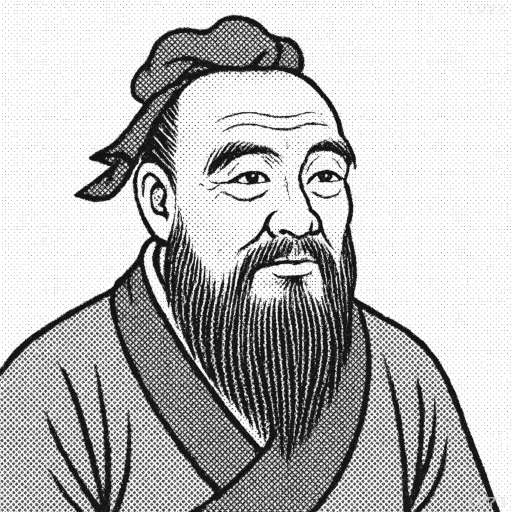“Speak the truth, do not yield to anger; give, if thou art asked for little; by these three steps thou wilt go near the gods.”

- 551 BC – 479 BC
- Han ethnicity
- Philosopher, educator, politician
table of contents
Quote
“Speak the truth, do not yield to anger; give, if thou art asked for little; by these three steps thou wilt go near the gods.”
Explanation
This saying emphasizes three key virtues: truthfulness, self-control, and generosity. Confucius suggests that living by these principles brings one closer to divine wisdom or higher moral character. By speaking the truth, one demonstrates integrity and honesty, which build trust and strengthen relationships. Resisting anger reflects emotional mastery and patience, allowing us to respond thoughtfully rather than react impulsively. Lastly, giving even a little when asked reflects compassion and an openness to helping others, fostering a spirit of kindness and unity.
In our daily lives, these practices serve as timeless guidance. For example, in personal relationships, truthfulness and kindness form the foundation of lasting trust and respect. In professional settings, maintaining calm under pressure helps us navigate challenges and conflicts more effectively. Acts of generosity, no matter how small, create a ripple effect, inspiring others to adopt similar behaviors and creating a culture of mutual support.
Confucius’s teaching reminds us that by embodying these values, we cultivate a character that aligns with higher ideals of goodness and virtue. Through truthfulness, restraint, and generosity, we contribute positively to our communities, elevate our own character, and draw nearer to a life of moral excellence and harmony.
Would you like to share your impressions or related stories about this quote in the comments section?


